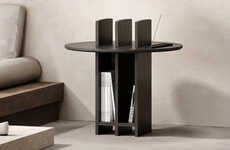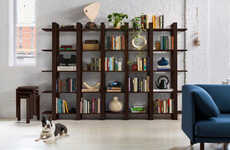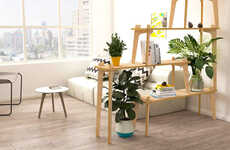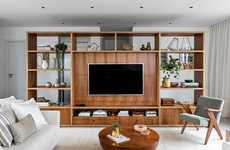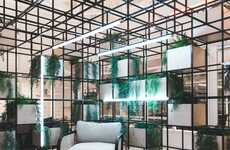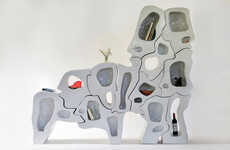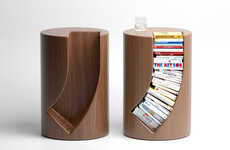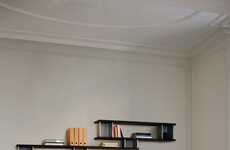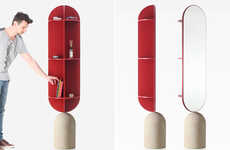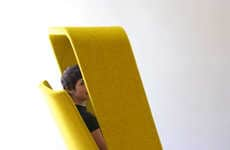
The Double Faced Shelving Unit was Designed for Partition-Like Placement
Amelia Roblin — November 12, 2013 — Art & Design
References: daphnalaurens.nl & leibal
In smaller rooms, bookcases are commonly erected against the walls. While many without backings might have suited the desired freestanding placement in the EHV 365 office, the custom Double Faced Shelving Unit is ideal.
Daphna Laurens had the client in mind specifically with the creation of this set of three abstract modules. The storage system comprises asymmetrical metal frames and thin metal ledges in black that fold around to produce cubbies and other shelves when approached from the other side. With this composition, different items can be stashed completely out of sight of the opposite face.
Several Double Faced Shelving Units are lined up in the workspace to create a room divider as a second function, plus their irregular contours produce a whimsical reference to mountain peaks.
Daphna Laurens had the client in mind specifically with the creation of this set of three abstract modules. The storage system comprises asymmetrical metal frames and thin metal ledges in black that fold around to produce cubbies and other shelves when approached from the other side. With this composition, different items can be stashed completely out of sight of the opposite face.
Several Double Faced Shelving Units are lined up in the workspace to create a room divider as a second function, plus their irregular contours produce a whimsical reference to mountain peaks.
Trend Themes
1. Two-faced Furniture - Designing furniture with double faces to cater to smaller homes and offices.
2. Modular Storage Systems - Creating storage systems that comprise asymmetrical metal frames and thin metal ledges for cubbies and other shelves.
3. Whimsical Room Dividers - Incorporating irregular contours into room dividers to create a unique and playful atmosphere.
Industry Implications
1. Furniture Manufacturing - Manufacturing companies can produce double-faced furniture for homes and offices that have space constraints.
2. Interior Design - Interior designers can suggest modular storage systems that fold around to produce cubbies and small shelves for their clients.
3. Architecture - Architects can incorporate modular storage systems and playful room dividers into their designs.
1.5
Score
Popularity
Activity
Freshness

